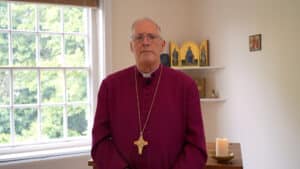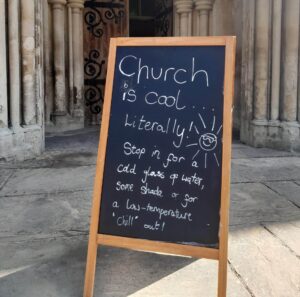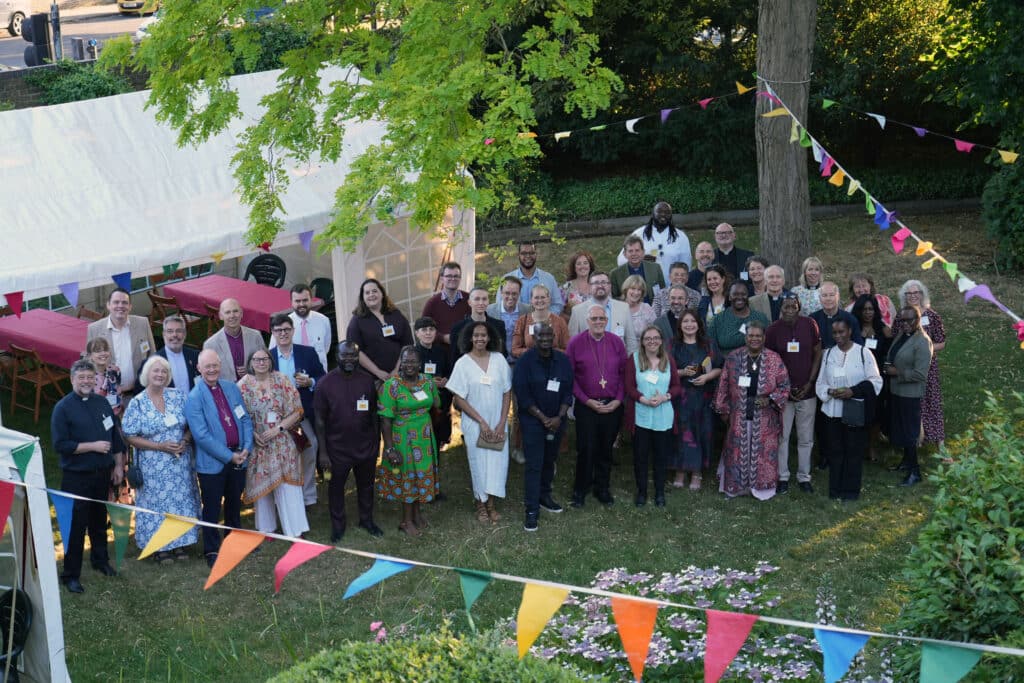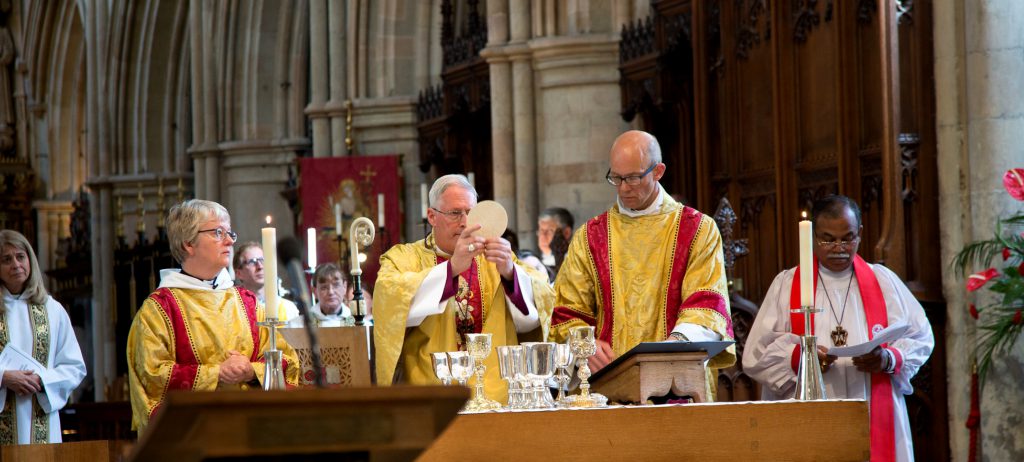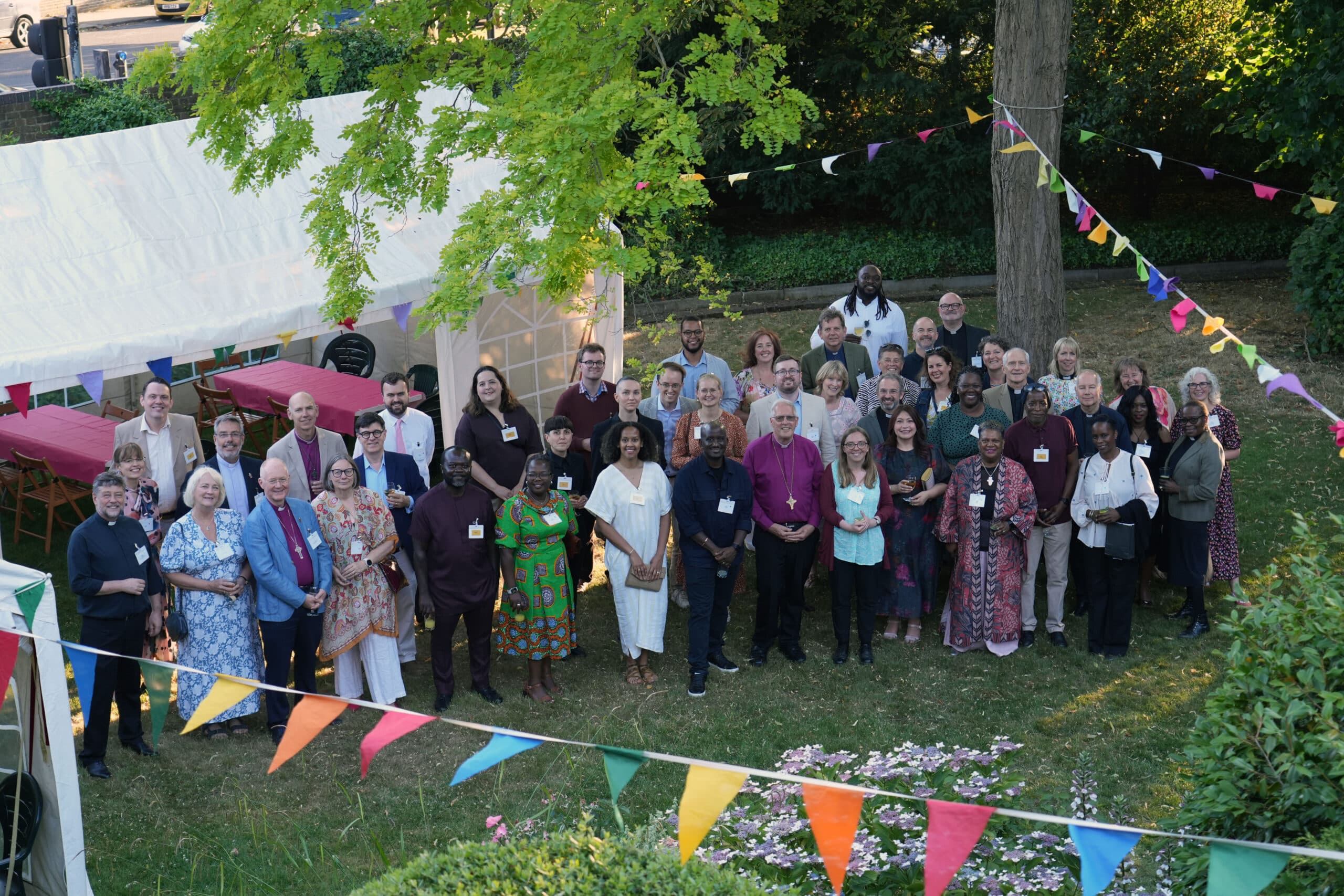I am very grateful to Bishop Christopher for inviting me to give this Presidential Address, and especially so as it will be one of my last Synods before I finish my role as Bishop of Kingston in October this year. Maybe Bishop Christopher wanted to download part of my brain before I go! I hope it will be of help and encouragement to the work of this Synod and our Diocese.
“Proclaim the gospel afresh in each generation” is a phrase which has come to mean much to me over the years. It occurs in the preface to the Declaration of Assent, which all those being ordained into the Church of England or moving to a new ministry have to make – affirming their belief in the Christian faith. The phrase captures something of the given-ness and permanence of the Gospel, and also of the transience and changing character of each generation and context in which the Gospel is proclaimed. The Gospel is expressed in our Scriptures and Creeds and tells the story of the good news of God’s saving love for all creation, made known in the life and death and resurrection of Jesus Christ. It is in following that way of the self-giving love of God that we find hope and life even in the most difficult and challenging situations.
That Christian understanding and way of life has to be lived out in each successive generation. For us in the 21st-century, we are very aware that our world is deeply plural, with many major religions and world-views. It is deeply secularised with large numbers of people seemingly disconnected from the ideas of God and religion, and it is profoundly influenced by the extraordinary developments and understandings which science gives to us. In recent years we have experienced huge global challenges. There is still a long way to go as we emerge from the coronavirus pandemic which has so radically changed our ways of life. It has challenged us to think about the things we care about deeply, and about what kind of world we really want to live in. The “Build back better” agenda emphasises the importance of economic, environmental and racial justice, reflecting the deep human desire for a better world. We are all aware, too, of the huge challenge of climate change and its impact on all of life on Earth. If we get that wrong then we will face problems many orders of magnitude bigger than those of the pandemic. And if that wasn’t enough, we now have the hugely challenging and distressing conflict in Ukraine inflicting immense suffering in the people there and having ramifications throughout the world. I am grateful again for the lead Bishop Christopher is giving to help our Church to know how best to respond to that crisis both in our work for peace and justice, and through the provision of humanitarian aid. All these huge changes mean that in many ways in a very short space of time we have gone through a generational shift in which our world has changed profoundly.
And so we need to think hard about how the Gospel, with its understanding of salvation and redemption, is to be proclaimed into our own generation with all these challenges. The Gospel speaks to every situation in human life – the good and the bad. Bishop Richard Harries, the former Bishop of Oxford who is an Assistant Bishop in this Diocese, has written a book entitled “The Beauty and the Horror – Searching for God in a suffering world”. At the heart of the Gospel is the death and resurrection of Christ, which embraces the suffering, evil, death and desolation of human life, but gives us the hope that this can be transformed by the saving love of God in Christ. We are meeting in the season of Lent, which is a time for lamentation, examination of life, repentance and amendment of our ways more in line with the saving love of God. It is that Gospel which underpins everything we do in our Church and should guide all our thinking in this Diocesan Synod.
We are meeting today in this wonderful church building of St Peter’s Battersea and the story of the Church in this part of London is an illuminating one. Around 1840 the population of Battersea was about 6000 and there were two churches. By around 1900 the population had grown to 168,000 and were served by 25 Church of England churches as well as many from other denominations. Many industries developed and there was major poverty and poor housing. When Clapham Junction railway station was built in 1863 it was named by the nearby fashionable village of Clapham, rather than the decidedly downmarket area of Battersea. It is worth noting that many of those then new churches had seating capacity for several hundred people, but according to the census of 1902 were rarely even half full, and about 10% of the local population went to church at that time. Many of these churches started in temporary iron buildings, and were built in the last quarter of the 19th century, after South London was transferred from the Diocese of Winchester to the Diocese of Rochester. The then Bishop of Rochester, A W Thorold, regarded the Battersea church building programme as a model for South London and established a Bishop of Rochester’s 10 churches fund targeted at urban areas. The then vicar of the longer established church of St Mary Battersea, John Erskine Clarke, was also very active in this mission to proclaim the Gospel in his generation, developing several churches and also schools and a hospital across this part of London. The churches included St Mark’s Battersea Rise and the original church of St Peter’s Battersea. The Vicar of St Mary’s Battersea remains today, the patron of several of these churches.
The Victorian church of St Peter’s was built in 1876, and almost a century later was destroyed by fire in 1970. By that time the area it served included the Winstanley estate built in the 1960s in an area badly bombed during the Second World War. By the early 2000s the estate suffered high levels of poverty and crime. Since then there has been a remarkable effort of regeneration, including the huge nearby Battersea and Nine Elms development which includes Battersea Power Station and the new US Embassy.
Early ideas for the vision of this splendid new church building were considered nearly 20 years ago. Initially, the Rev Paul Perkin from St Mark’s Battersea rise was the Priest-in-Charge, and more recently the Rev Patrick Malone. They and many other people, both from the parish and the Diocese, have been involved in an extraordinary effort to establish this new building and the vision. It has taken many years, and faced considerable challenges in the journey, but looks forward in hope to proclaim the Gospel afresh to this generation in this part of London. The story of St Peter’s in different generations, and including today, shows a real commitment to engage deeply in the local community to live and share the good news of God’s love in this place.
Wherever the Church may be, it is vital to have an understanding not only of each generation, but crucially of the Gospel which embraces God’s love for all creation, including, of course, humankind, but not limited to us. There are many Bible passages which speak in cosmic terms of God’s salvation in Christ. This is why in our understanding of God’s mission in the world the five Anglican Marks of Mission have become so deeply embedded in the vision statements not only of this Diocese, but also of the Church of England and the of wider Anglican Communion. The five Marks of Mission speak not only of the importance of people coming to faith and deepening that faith, but also of working to respond to human need by loving service, of seeking to transform unjust structures and of safeguarding the integrity of creation. It is vital that the Church lives out this broad and deep understanding of the way of God’s love in our world in every place.
Our Diocesan Synod agenda today reflects this broad understanding of the Gospel and how we seek to proclaim that in our own generation. We will be looking at our priorities as a Diocese over the next three years, and also the implications of the impact of the pandemic. We shall be looking at how we live well together in love and faith, and how we seek to care for God’s creation and implement our journey as an eco-diocese. And we shall hear something of the vital and hugely important work of our Board of Education with well over 100 church schools as well, as our colleges and universities.
Each one of us is called by God to use our gifts to help to proclaim the Gospel afresh in our generation. Your contribution as members of the Synod really does matter. One of the features of the end of some of the Epistles of St Paul is a list of people who are engaged with him in the work of mission. Very often we know little about the background of those people, but the very fact that they are named shows that the Church is not an individual or solo effort, but profoundly something that we do together as the whole body of Christ. As we look forward to the next three years of the Synod there will be some changes, of course. We have very sadly lost the services of a distinguished servant of this Diocese in Philip Fletcher, who died recently. He served this Diocese and the wider Church with great grace and distinction and is sorely missed. He was a great champion for environmental causes. We have just said farewell to Bishop Jonathan, after 10 years of distinguished service as Bishop of Croydon. We give thanks for his ministry and pray for the appointment of his successor. Many of you will also be aware that I will be finishing in October as Bishop of Kingston. It has been, and is an extraordinary privilege to live and serve in this wonderfully diverse and vibrant Diocese. I hope and pray that through all the changes we will all be able to play our full parts in serving God now and into the future.
We are all called to proclaim the Gospel afresh in each generation. May God bless the work of this Synod today and over the next three years, and may we all be empowered by the grace of the Holy Spirit to fulfil that calling.
+Richard Kingston






